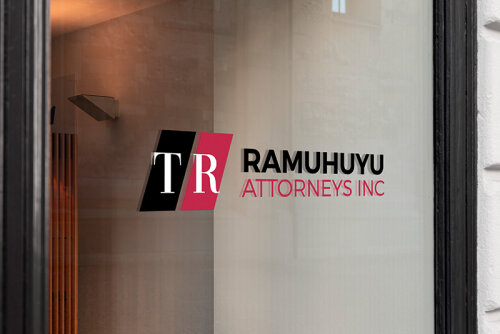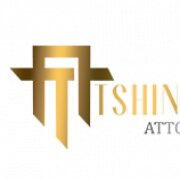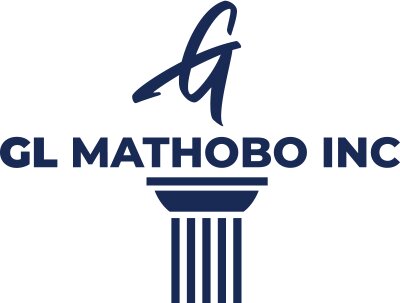Best Franchising Lawyers in Thohoyandou
Share your needs with us, get contacted by law firms.
Free. Takes 2 min.
List of the best lawyers in Thohoyandou, South Africa
About Franchising Law in Thohoyandou, South Africa
Franchising is a popular business model in South Africa, offering opportunities for both local and international expansion. In Thohoyandou, franchising is particularly appealing due to the region's strategic location and growing economy. This business model allows a franchisee to operate a business using the franchisor's brand, products, and business systems. The regulatory framework ensures that franchising agreements are fair and transparent, protecting both franchisors and franchisees. The Consumer Protection Act, specifically the Franchise Code, plays a pivotal role in governing franchising practices in South Africa.
Why You May Need a Lawyer
Engaging in a franchising opportunity involves significant legal and financial considerations. Common scenarios where legal advice becomes crucial include reviewing and negotiating franchise agreements, understanding the implications of non-compete clauses, handling disputes between franchisor and franchisee, and ensuring compliance with regulatory standards. Lawyers can also provide expertise in intellectual property rights, trademarks, and other legal protections needed for operating a franchise successfully.
Local Laws Overview
Key aspects of local laws relevant to franchising in Thohoyandou include adherence to the Consumer Protection Act, which mandates certain disclosures and fair practice standards. Franchise agreements must be in compliance with the Franchise Code, which includes requirements for disclosure documents and cooling-off periods. Intellectual property laws, business registration, and tax compliance are also crucial elements of the legal framework. Local municipal regulations may impact the establishment and operation of franchise locations, requiring attention to zoning laws and business licenses.
Frequently Asked Questions
What is franchising, and how does it work?
Franchising is a business model where a franchisee is granted the rights to operate a business under the franchisor's brand and systems. This arrangement involves a contractual agreement outlining the terms and conditions of the relationship.
What legal documents are necessary for franchising?
Key legal documents include the franchise agreement, disclosure documents, operations manuals, and any intellectual property licenses. It is essential to have these reviewed by a legal expert before signing.
How is the Consumer Protection Act relevant to franchising?
The Consumer Protection Act aims to ensure fair, transparent dealings between franchisors and franchisees, requiring full disclosure and setting out key responsibilities and rights for both parties.
What should I know about the Franchise Code?
The Franchise Code sets mandatory requirements for disclosure and conduct. It governs the documentation provided by franchisors to potential franchisees and establishes cooling-off periods before agreements are finalized.
Can franchise agreements be negotiated?
While some terms in franchise agreements are fixed, there may be scope for negotiating terms such as territory rights, conditions for renewal, and exit strategies. Engaging a lawyer can assist in understanding and negotiating these aspects.
What are the risks of entering a franchise agreement?
Risks include financial losses, contractual disputes, and potential liabilities. Additionally, market saturation or poor franchisor support can negatively impact the business. Legal guidance can help mitigate these risks.
How are disputes between franchisors and franchisees resolved?
Dispute resolution mechanisms, including mediation or arbitration, are typically outlined in the franchise agreement. Legal advice can help navigate these processes effectively.
What are the tax implications of operating a franchise?
Franchisees must comply with local tax laws, including VAT registrations and income tax filings. It is important to understand these obligations and consult with financial and legal professionals.
How can I protect my intellectual property within a franchise?
Intellectual property protection is critical and often involves trademarks, patents, and copyrights. Legal advice can ensure that these rights are adequately safeguarded in the franchise agreement.
What should I consider when choosing a franchise in Thohoyandou?
Potential franchisees should evaluate the franchisor's track record, brand reputation, financial stability, and support systems. Local market conditions in Thohoyandou should also be assessed to ensure a viable business opportunity.
Additional Resources
For more information about franchising in Thohoyandou, valuable resources include the Southern African Franchise Association (SAFA), the Department of Trade, Industry and Competition's (DTIC) guidelines on franchising, and local business advisories. Consulting with experienced franchise lawyers in Thohoyandou can provide further tailored advice.
Next Steps
If you are considering embarking on a franchising journey in Thohoyandou, it is advisable to conduct preliminary research and engage with a legal professional specializing in franchising. Start by contacting a reputable local law firm with expertise in franchise law, and arrange for a consultation to discuss your specific needs and objectives. Legal assistance will help ensure compliance with relevant laws, safeguarding your investments and facilitating a successful franchise operation.
Lawzana helps you find the best lawyers and law firms in Thohoyandou through a curated and pre-screened list of qualified legal professionals. Our platform offers rankings and detailed profiles of attorneys and law firms, allowing you to compare based on practice areas, including Franchising, experience, and client feedback.
Each profile includes a description of the firm's areas of practice, client reviews, team members and partners, year of establishment, spoken languages, office locations, contact information, social media presence, and any published articles or resources. Most firms on our platform speak English and are experienced in both local and international legal matters.
Get a quote from top-rated law firms in Thohoyandou, South Africa — quickly, securely, and without unnecessary hassle.
Disclaimer:
The information provided on this page is for general informational purposes only and does not constitute legal advice. While we strive to ensure the accuracy and relevance of the content, legal information may change over time, and interpretations of the law can vary. You should always consult with a qualified legal professional for advice specific to your situation.
We disclaim all liability for actions taken or not taken based on the content of this page. If you believe any information is incorrect or outdated, please contact us, and we will review and update it where appropriate.











